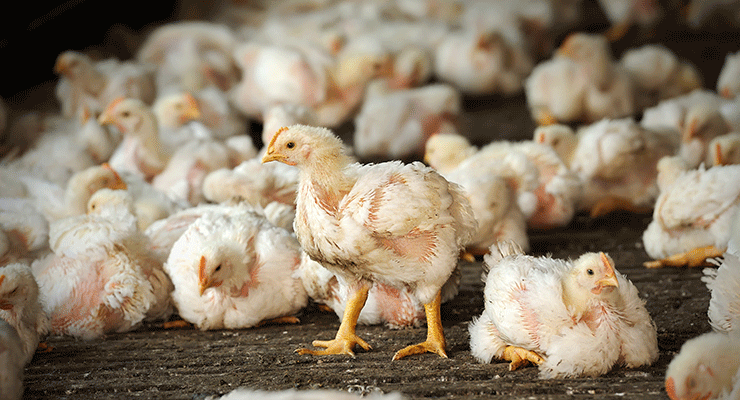The U.S. Department of Agriculture’s (USDA) National Institute of Food and Agriculture (NIFA) has announced funding awards totaling nearly $19 million, including more than $6.7 million for antimicrobial resistance strategies, to 36 grantees.
NIFA made the awards through the Agriculture and Food Research Initiative (AFRI) Food Safety program to protect consumers from microbial and chemical contaminants that may occur in the food chain, from production to consumption. This year, AFRI’s Food Safety program is comprised of five sub-programs. The following projects have been selected for awards in each sub-program:
Enhancing Food Safety through Improved Processing Technologies
- University of Arkansas, Pine Bluff, Ark. $149,000
- Tennessee State University, Nashville, Tenn., $500,000
- University of Maine, Orono, Maine, $900,000
- University of California, Davis, Calif., $751,000
- Michigan State University, East Lansing, Mich., $700,000
Effective Mitigation Strategies for Antimicrobial Resistance
- Colorado State University, Fort Collins, Colo., $749,838
- University of Florida, Gainesville, Fla., $2,193,556
- University of Minnesota, Minneapolis, Minn., $2,250,000
- Wake Forest University, Winston-Salem, N.C., $15,000
- Texas A&M University, College Station, Texas, $16,500
- Virginia Polytechnic Institute and State University, Blacksburg, Va., $750,000
- Washington State University, Pullman, Wash., $749,993
Identifying and Targeting Food Safety Needs
- Illinois Institute of Technology, Chicago, Ill., $50,000
Improving Food Safety
- University of Connecticut, Mansfield, Conn., $49,744
- University of South Florida, Tampa, Fl., $499,972
- Emory University, Atlanta, Ga., $499,968
- University of Hawaii, Honolulu, Hawaii, $499,516
- University of Maine, Orono, Maine, $150,000
- University of Massachusetts, Amherst, Mass., $499,567
- University of Minnesota, Minneapolis, Minn., $500,000
- University of Nevada-Reno, Reno, Nev., $150,000
- Cornell University, Ithaca, N.Y., $979,761
- North Dakota State University, Fargo, N.D., $172,339
- The Ohio State University, Columbus, Ohio, $50,000
- University of California, Davis, Calif., $499,812
Improving Food Quality
- University of California, Davis, Calif., $498,356
- University of Florida, Gainesville, Fla., $499,652
- University of Idaho, Moscow, Idaho, $248,408
- University of Illinois, Champaign, Ill., $861,714
- Purdue University, West Lafayette, Ind., $465,694
- Iowa State University, Ames, Iowa, $420,685
- University of Maine, Orono, Maine, $46,293
- University of Maryland, Princess Anne, Md., $149,998
- University of Massachusetts, Amherst, Mass., $499,977
- Michigan State University, East Lansing, Mich., $489,528
- West Virginia University, Morgantown, W.V., $435,353
“Increasing food safety continues to be a major focus for USDA, as it directly impacts the health and well-being of all Americans,” said Sonny Ramaswamy, NIFA director. “Funding provided to universities supports discoveries of new ways that we can prevent foodborne illnesses and increase the safety of our food production industry.”
Successful projects funded in previous years include a project at the University of Nebraska to reduce the occurrence of Shiga toxin-producing E. coli (STEC) along the entire beef production pathway, a development of microwave pasteurization technology at Washington State University to reduce pathogens and extend shelf-life of processed foods, efforts at the University of California-Davis to understand how pathogens survive on and infect fresh produce, and a project at Georgia Tech looking at new methods of Salmonella detection.



